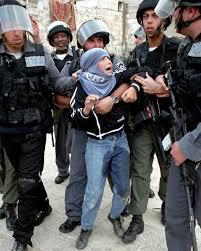
Quite simply, State violence is violence enacted by the State or its subsidiary bodies , for example, police and security forces, or care institutions. The UN Study on Violence Against Children (UNVC, 2006) uses the example of repressive anti-gang policies in Latin America which allow the deployment of State violenceagainst children. The existence of these policies has been justified by concern around youth violence, particularly in respect of gangs. Yet such policies frequently contravene human rights standards.
According to the Study,
"children are not responsible for the large majority of crimes of which they are accused, but there is a strong belief that the adoption of international human rights standards protects children (particularly adolescents) from justified punishment and is being used as a shield by young criminals. The perceived synchronisation between the adoption of human rights standards and the increase in crime in Latin America is sometimes used to undermine important legal advances and even to question the need for accountability in cases of State violence" (UNVC, 2006: 306).
The Study notes that State violence and corruption are two factors directly associated with violence in communities. Accordingly, “community confidence in local security and justice systems is central to the effectiveness of public policies” (UNVC, 2006: 306).
A Day of General Discussion, organised by the Committee on the Rights of the Child (henceforth, the Committee) in 2000, addressed State violence.
The themes discussed were the mistreatment, abuse and neglect of children in the care of the State, and violence against children in the context of ‘law and public order’ concerns.
For the first topic, the discussion focused on the State's obligation to protect from all forms of abuse those children deprived of a family environment who have been entrusted to its care. This duty of special protection, as stipulated by Article 20 of the UN Convention on the Rights of the Child (CRC), extends to children who have been placed for adoption or in foster care.
For the second topic, the foundational principle was that at all stages of the juvenile justice process, children who are alleged to have committed offences are entitled to be treated “in a manner consistent with the promotion of the child’s sense of dignity and worth,” as stipulated by Article 40 of the CRC. Also addressed were article 37, concerning torture and cruel, inhuman or degrading treatment, and article 19, concerning abuse. In addition, there was a focus on street children, who are among the most vulnerable victims of the most extreme forms of violence, including extrajudicial or summary execution, in many countries. Homeless children are particularly vulnerable.
The Committee adopted recommendations concerning: action at the international level; the review of legislation; awareness-raising, sensitisation and training; prevention, including alternatives to institutionalisation; monitoring and complaints mechanisms; resources; and the role of NGOs.
What can be done about it?
Besides the ratification, and of course observance, of international human rights instruments addressing State violence, the Study on Violence Against Children recommends improving training and reforming law enforcement generally, and ensuring that it is functioning in accordance with international norms.
The Study also emphasises that:
"It is fundamental to ensure independent monitoring and thorough investigation in all cases of State violence. Apart from being a core human right obligation, ensuring State accountability is crucial in building trust and improving the efficiency of security policies. Impunity for perpetrators of police violence against street children often allows such abuse to continue. Many police who commit violence against children are never investigated or prosecuted. Mechanisms must be put in place to ensure that police and other security personnel implicated in violence against children are promptly and thoroughly investigated, and held accountable" (UNVC, 2006: 323).
Finally, the Study recommends the establishment of permanent mechanisms such as ombudspersons or civilian review boards to independently receive and investigate cases of violence by the security forces.
Source: Crin
 FR
FR EN
EN AR
AR








